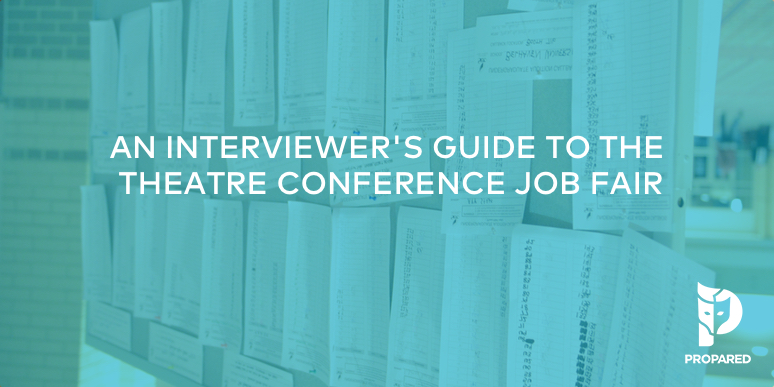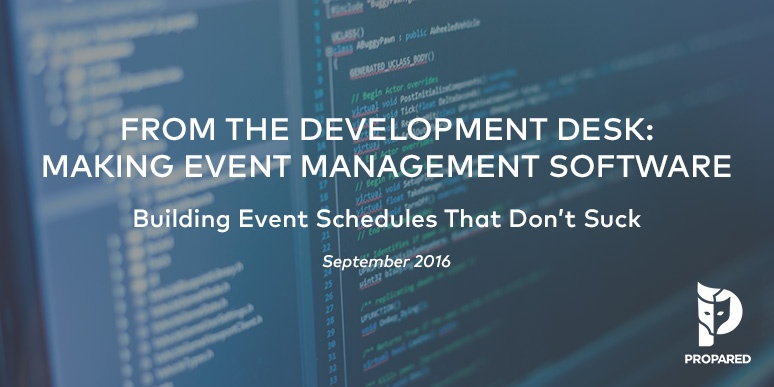This week at Propared we’ve spent a lot of time thinking about Schedules; those lovely documents that rule our lives and give us grounding and stability. We have also been thinking about the challenges that Stage Managers face in creating and maintaining them; those lovely documents that drive us to madness (but ultimately keep us coming back for more).
What we realized is that out of all the things that go into making a schedule, Time is the most unforgiving aspect. Everything else on the schedule is fluid, but Time is constant. It’s unforgiving and doesn’t wait for anyone, and typically, there isn’t enough of it. So, we started looking at scheduling not to manage the aspects that fit within Time but for the process of managing Time itself.
Scheduling can be tackled in a variety of ways, but it usually depends on the type of show and where you are in the process. For example: the approach you take to build the schedules for a run of Les Miserables will be very different from the way you approach a one-night product launch party.
Building a rehearsal schedule is different than building a production schedule. For rehearsals you might spend the majority of your time managing actors work, vacation, and childcare. For production schedules, you’ll be focused on deadlines like plot due dates, equipment deliveries, and load in times.
You also change your perspective depending on the part of the process you’re in. During the initial phases of produciton you have to have a big picture vision of what’s going on asking questions like:
- When is the show?
- Where is the show?
- When do we rehearse?
- When do we load in?
- When do we load out?
- How many millions am I getting paid?
The answers to these questions (ok, except for that last one) constitute basic shapes carved out of a large expanse of time. We don’t know the exact hours and minutes, nor do we know specific details about the tasks to be performed. However, it is vital that this information is recorded and distributed as quickly as possible to ensure successful long term planning for everyone involved.
As we work our way through the process, we then shift into anal-retentive mode, focusing on such precise questions like:
- When can we get into the building?
- Who is available during which hours to rehearse which scenes?
- If scenic arrives before rigging will they be standing around with nothing to do?
- If Juliet arrives at 4pm for her costume fitting can we get her done in time to rehearse scene 6?
At this point, the schedule morphs from a set of mile markers into a living document that is constantly being revised and redistributed as information is collected.
All of this revising and updating culminates in a detailed tool that is never really finished until the show is closed and everyone has moved on to their next gig.
As managers, we have a responsibility to nurture this document throughout the life of the production and navigate the back and forths and ups and downs. It’s just what we do. And we won’t let time get the better of us…because we are prepared…or Propared 🙂



